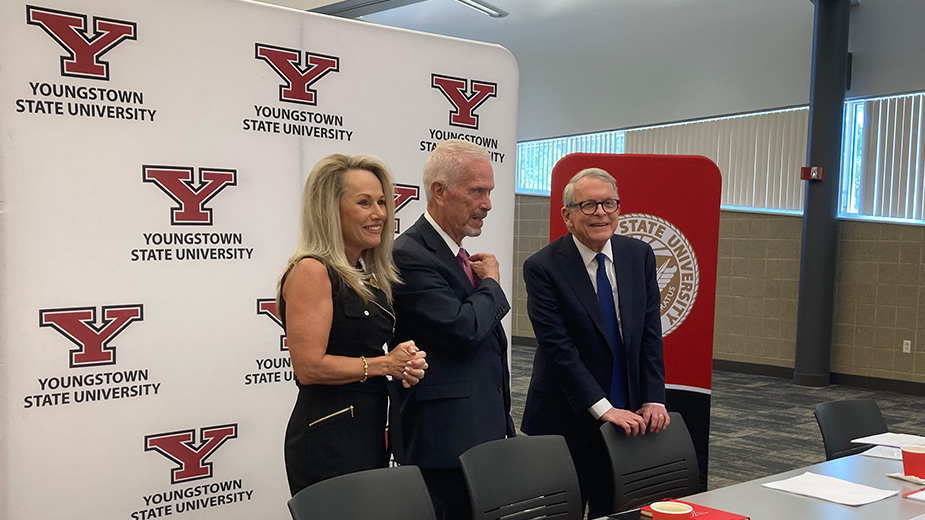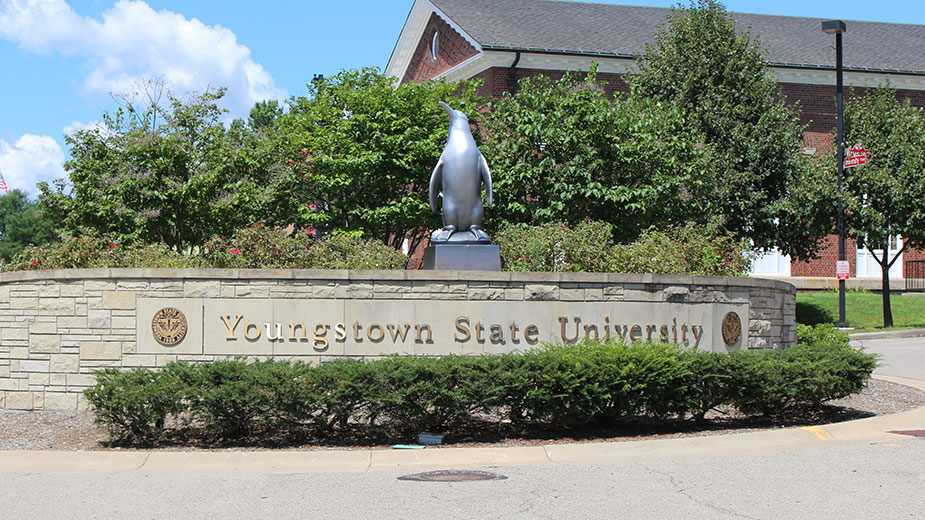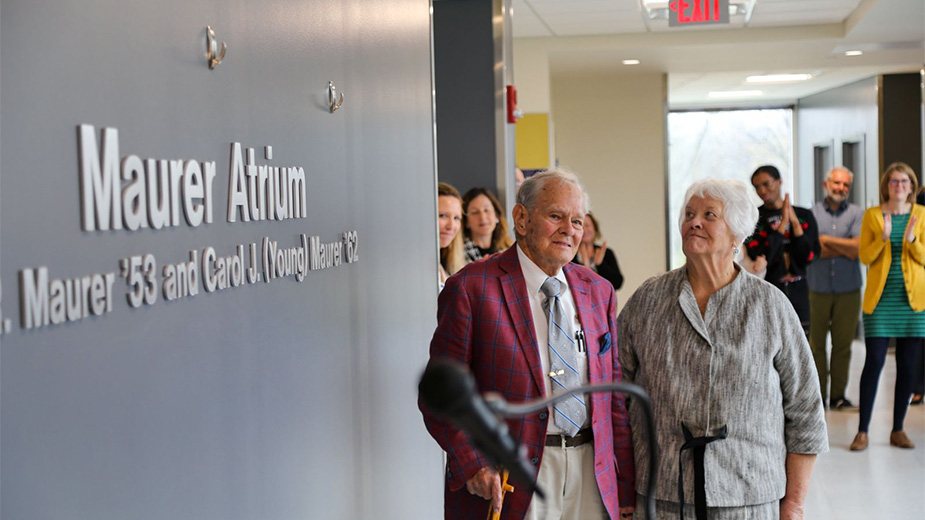Audience Assails Kasich Plan to Reform City Schools
YOUNGSTOWN, Ohio — For nearly three hours Monday afternoon, parents, teachers, former teachers, a retired principal, school board members (current and past), union officials, professors of education at Youngstown State University and graduates of city high schools condemned Gov. John R. Kasich’s plan to reorganize the administration of Youngstown public schools.
The reorganization, as set forth in an amended House Bill 70, would give control to an Academic Distress Commission who would choose a CEO with broad authority to run Youngstown public schools. The measure, which the governor is expected to sign Thursday, all but removes local control from the school board and superintendent, could strip teachers of their right to bargain collectively and, many fear, end up dissolving the school district.
The audience of more than 300 in the auditorium of McGuffey Elementary School didn’t hold back their feelings about Kasich, the Republican-dominated state Legislature that passed the 66-page amendment 36 hours after it was introduced, or Tom Humphries, president of the Youngstown-Warren Regional Chamber. Most perceived Humphries as instrumental in passage of the amendment without hearings or input from anyone from Youngstown except himself.
Even the author of the original 11-page bill, state Rep. Denise Driehaus, D-31 Cincinnati, voted no on House Bill 70. “I voted against my own bill,” she told the audience.
Driehaus sat at the table in the with state Sen. Joe Schiavoni, D-33, Boardman, who convened the meeting, Mayor John A. McNally, state Rep. Michele Lepore-Hagan, D-58 Youngstown, state Rep. Michael O’Brien, D-64 Warren, state Sen. Cecil Thomas, D-9 Cincinnati, and Humphries.
The amendment, Driehaus said, runs counter to the intent of the community learning centers in the original bill she introduced. Her hope was to allow other school districts in Ohio to replicate them.
The community learning centers remain in the bill. In Cincinnati, the centers — all within schools in that district — provide students with vision, dental and mental-health services paid for through public-public and public-private partnerships. No education dollars are spent directly on those services, she said.
Driehaus’ bill passed the House with nearly unanimous support after both state senators and representatives and other community stakeholders from throughout Ohio visited Cincinnati and saw for themselves the success of the centers. Her 11-page bill would allow other districts to replicate the Cincinnati model.
It calls for parents to be engaged in the success of their children, she said. The amendment, which concentrates authority in the person of a CEO instead of diffusing it among parents, teachers, administrators, community stakeholders and school boards, runs counter to her intent.
“So you can see the bill and amendment don’t work very well together,” she told a full auditorium.
Cecil Thomas, who represents Hamilton County in the Senate, supports Driehaus’ original bill and called for more “wrap-around services” for all schools in Ohio but especially those in the most troubled Ohio districts, to wit, Youngstown and Lorain. Instead of the amendment. “The state Legislature could’ve used this model, which works,” he said. Wrap-around services are “essential supplements to teachers” trying to help students who live in poverty and otherwise disadvantaged. “When we build new schools [in Ohio], we should build them close to community learning centers,” he said.
Darold Johnson, legislative and political director for the Ohio Federation of Teachers elaborated on Thomas and Driehaus’ description. “The model’s been around since the late 1980s,” he said, “and Cincinnati was the first to adopt it district-wide” in its 55 schools.
“Why not replicate something that works?” he asked, rather than reorganize the administration of Youngstown city schools.
The next hour and 45 minutes was mostly harsh criticism of how the amendment to HB 70 was passed, accusations and fears that whoever the five-member Distress Commission chooses as CEO will not be a professional educator and lack an appreciation of the challenges Youngstown schools face.
HB 70 establishes an academic distress commission of five members, three appointed by the state board of education, one by Mayor John A. McNally and one by the Youngstown school board. It would hire a CEO “to exercise complete operational, managerial and instructional control of the district,” its language reads.
The CEO would have the authority to replace administrators and staff, reduce staff, set class sizes, and determine curriculum and instructional materials. The CEO would also have the power to suspend or amend collective bargaining contracts, reconstitute any school as a charter school and close a school entirely.
The first member of the audience to speak, Lois Romanoff, who described herself as a retired school psychologist from Cleveland, set the tone. “This is about the privatization of public schools,” she began, and expressed a sense that “ALEC [American Legislative Exchange Council] and other right-wing organizations” want to convert Youngstown public schools to charter schools.”
The president of the Youngstown Education Association, Larry Ellis, noted that his membership ranks 14th in pay among the 15 districts in Mahoning County. Regardless, he said, “We care” and expressed concern that the “reform” in amended HB 70 is “at heart” an effort to expand charter schools.
As with the original distress commission created in 2010, no one in Columbus or Humphries even asked a teacher for his advice or counsel on how to turn city schools around, Ellis said. “When are you going to start talking to teachers?” he asked the legislators at the table.
And Ellis asked, “What check is there to make sure the CEO doesn’t become a plum for Republican patronage?”
Schiavoni responded thatwas “my original concern, my fear, when I first read the bill [that night].” He allowed, “That could be true.
The many succeeding comments – only rhetorical questions were asked during the time set aside for question-and-answer – built on those criticisms with personal attacks on Humphries for, his accusers said, not soliciting comments from stakeholders before meeting with the Republican leadership in Columbus that passed HB 70 and that he lacks an appreciation and understanding of what Youngstown school have been up against.
Among the questions:
- “How do you take public money and spend it on for-profit charter schools?”
- “How do you expect us to succeed when we have been picked apart by charter schools and vouchers?”
- You’re going to go from an F to a C [on the state public schools report card] in one year? Really? Really?
And strong declarations:
- “Children are not a business. They’re human beings.” This retired teacher warned that Youngstown could be the first domino to fall of the eight metropolitan school districts in Ohio and that CEOs and distress commissions would be named to replace school boards and superintendents.
- “There is no valid statistical evidence that the [state proficiency] exams measure anything except which students live in districts that have high incomes and those that have low incomes.”
- “You’re looking at children as dollar signs.”
- On how the amendment was passed: “It’s a travesty. It’s not the way [the Legislature] is supposed to function.”
The Youngstown regional director of AFSCME Council 8, Jack Filak, said what the state Legislature has planned for Youngstown city schools “is even worse” than what it imposed on Cleveland. “This plan is designed to fail,” he charged. “How do we get from something inflicted on us to something like what works in Cincinnati?”
A retired teacher who participated in collective bargaining for the YEA, Phil Pillas, directed his remarks at Humphries, “Shame on you for helping the governor destroy collective bargaining in Youngstown and Youngstown city schools.” He was equally critical of YSU President Jim Tressel and the bishop of the Catholic Diocese of Youngstown, George V. Murry for their support of Humphries.
Afterward, Schiavoni said he and his colleagues will work to modify HB 70 before the governor signs it and that he is hopeful the worst that could happen won’t come to pass. The goal of city schools achieving a grade of C on the proficiency exams within one year, he said, could be extended if the distress commission is satisfied progress has been made.
Pictured: State Rep. Denise Driehaus, D-31 Cincinnati, addresses Monday’s meeting about the future of the Youngstown City Schools.
RELATED:
Humphries’ Commentary: New Rules, Reaction, ‘Renewed Optimism”
Copyright 2024 The Business Journal, Youngstown, Ohio.



